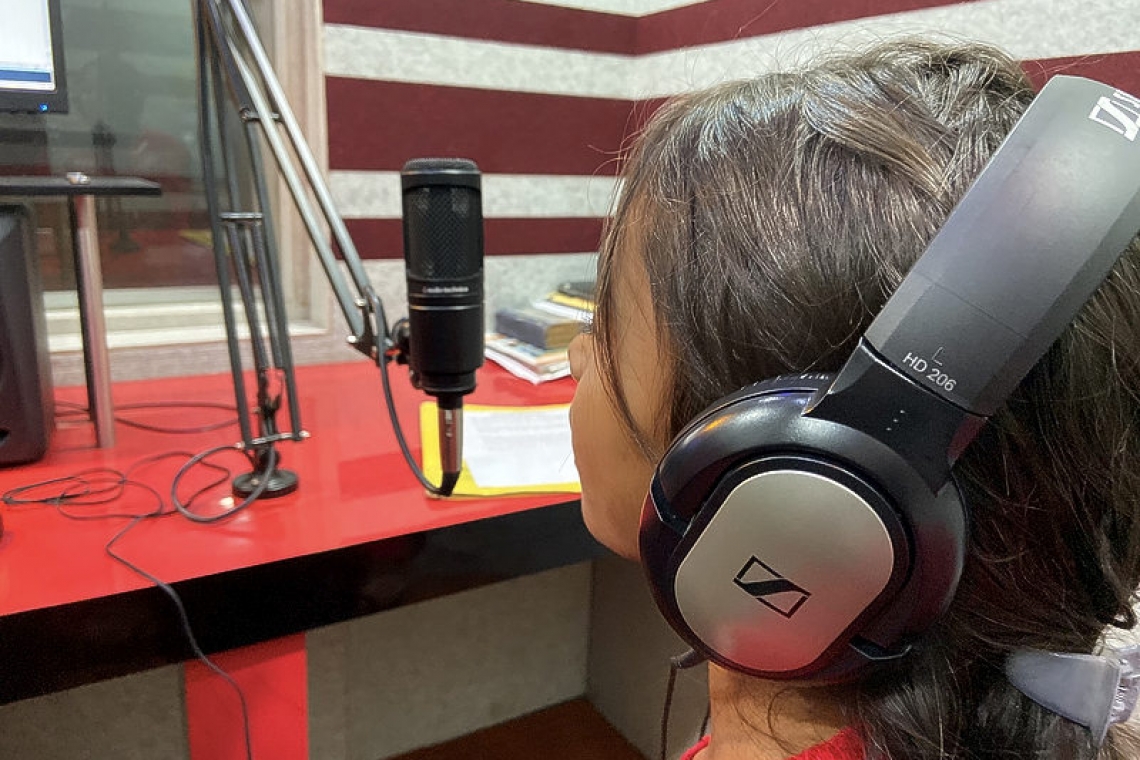GORAKHPUR, India--Balloon seller Nisha, 9, said purple was her favourite colour as she spoke into the microphone on a radio show in north India dedicated to highlighting the voices of child workers.
Nisha was among a group of children working and living on the streets of Gorakhpur, an impoverished town where child labour remains rampant, who stormed into the radio studio on a winter afternoon to recite poems, sing or talk about their day.
"I am told you give away balloons for free to some children," disc jockey (DJ) Jyoti Singh asked Nisha on radio channel Loudspeaker that was set up last year by an anti-trafficking charity to focus on children's issues.
"Yes, I do that when I see them cry," said Nisha, rocking on a swivel chair as she took part in a newly-launched hour-long weekly show featuring child workers.
The International Labour Organization estimates there are about 10 million workers between the ages of 5 and 14 in India and about 150 million child labourers globally. Indian law bans the employment of anyone aged under 15 but children can "support" family businesses after school hours.
Campaigners said this concession for family businesses has enabled employers to hire children to work in brick kilns, bangle and garment units, shoes factories and also on the streets and at train stations selling balloons, water or tea. Street children are the most visible form of child labour, according to campaigners, but often not given as much attention by authorities as those working in brick kilns or factories.
"Children on the streets are child workers but they are not victims of trafficking who have been separated from their families," said Vishwa Vaibhav Sharma, founder of Safe Society that launched the Loudspeaker radio channel last year.
The charity launched the weekly radio show on child workers four months ago to give children a medium to express themselves and to give the town a lesson on empathy and child labour laws. Police officials in Gorakhpur have been instructed by the government to check all forms of child abuse, officers said.
Mithai Lal Gupta, member of Gorakhpur's Child Welfare Committee, said putting child street workers into shelters was not the solution as they just started work again once out. "We have a shelter but it is not an ideal arrangement for children working on the streets. What do we have to offer them?" said Gupta.
Safe Society employs teachers to encourage parents to allow their children to study, which Sharma said was showing results. Among the dozen children who walked into the radio studio with Nisha, more than half had quit working.
Singh said the radio show on Loudspeaker focuses on the children, not their work, with reports in local newspapers of rescues of children employed as domestic servants indicating that there is more to do to raise awareness about child workers. "Some sell balloons, some work as maids, others work at tea stalls. But we don't emphasise on their work. They do not have a creative outlet like other children do," DJ Singh said. "We make them sing and dance, make them radio jockeys for the day and their stories come out in bits and pieces."







